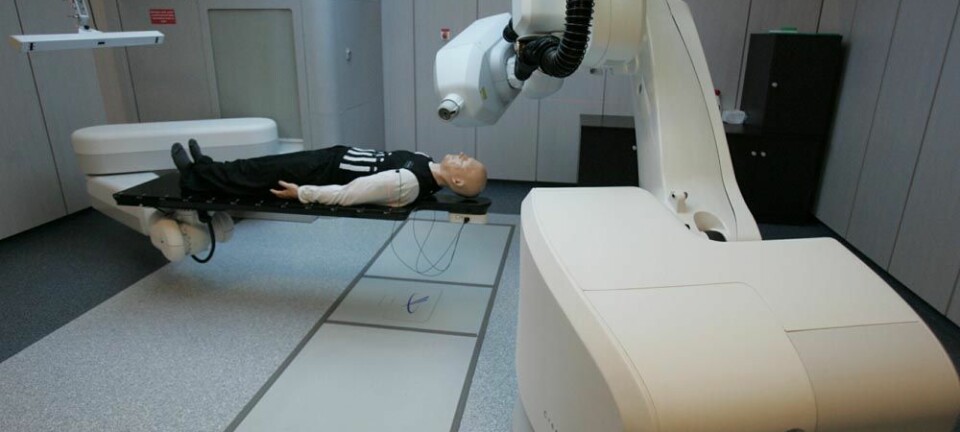
Mindfulness helps cancer patients
New research shows that mindfulness-based therapy can effectively reduce symptoms of anxiety and depression in cancer patients.
When people are diagnosed with cancer, their brains start working overtime. What will happen in the future? Will I die? What will happen to my family?
Answers to these big questions aren’t easy to find. As a result, many cancer patients become anxious and depressed – even after the cancer treatment is actually completed.
But now it looks like techniques such as mindfulness meditation could help these people.
Yoga soothes cancer patients
Danish scientists have just published a new meta-study which brings together all of the world’s research into the links between cancer and mindfulness.
British health authorities recommend using mindfulness-based cognitive therapy for the prevention of relapse in recurrent depression. And our findings are so solid that health authorities around the world may start recommending and implementing mindfulness-based therapy in clinical oncology settings.
They have found solid evidence that mindfulness-based therapy, including yoga, meditation exercises and other psychological techniques can help cancer patient to direct their attention away from the worries and speculation that make them depressed and anxious.
Mindfulness-based therapy includes two intervention programmes: Mindfulness-Based Stress Reduction (MBSR) and Mindfulness-Based Cognitive Therapy (MBCT).
“The study shows that mindfulness-based therapy is an effective way of treating anxiety and depression in cancer patients. Antidepressants have side effects and are expensive, so it’s certainly encouraging that the results show such a clear effect,” says one of the researchers, Professor Robert Zachariae, of the Department of Oncology at Aarhus University Hospital, and also affiliated with the Department of Psychology at Aarhus University.
“The average effect corresponds to about half as many anxious and depressed patients in the group that received mindfulness-based therapy, compared to those who did not receive this psychological treatment.”
Mindfulness helps us tolerate negative states
Researchers are still unsure of why mindfulness-based therapy is such an effective form of treatment.
But Jacob Piet, whose PhD thesis this study is part of, has a theory about why these methods work.
He believes that the mindfulness exercises present the patients with a good variety of challenging situations, which they learn to relate to with greater tolerance, kindness, and accept.
"Although the yoga exercises used in these treatment programmes are simple, the patients may still experience intense bodily sensations,” he says.
“They somehow get better at tolerating unpleasant bodily sensations, and difficult thoughts and emotions, which for some people may activate undesirable and negative psychological processes such as emotional avoidance, worry, and rumination, which are all characteristics of both anxiety and depression.”
Not many qualified instructors
It is important that the mindfulness exercises are practiced correctly if they are to be of any help.
Although many Danish therapists offer mindfulness training, not many of them are directly qualified to work with one of the two methods, which have proved most effective:
- Mindfulness-Based Stress Reduction (MBSR), and
- Mindfulness-based cognitive therapy (MBCT)
“The two methods are quite similar,” says Piet.
“They’re programs lasting eight weeks, where the patients meet once a week in groups of 15-30 with one MBSR or MBCT teacher.”
Each session lasts 2½ hours, and patients are asked to practice mindfulness for 45 minutes every day at home.
The exercises at a glance
- Very simple and gentle yoga exercises
- Exercises in which the instructor guides the participants in a bodyscan with their attention systematically focused on different parts of the body. This helps them relate to their bodies with greater kindness and awareness.
- A variety of sitting meditation practices, focusing on the body, breathing, ambient sounds and thoughts. The objective is to stay present and, whenever attention is distracted (e.g. by thoughts about the past or the future), to redirect it back to the present moment.
- Walking meditation where patients walk while being attentive to the sensations of walking and other present-moment experiences such as the breath or the sound.
“And then there’s a lot of informal training too. When you brush your teeth, you should try to be aware of it – rather than just let your mind drift off somewhere else,” says Piet.
Coming soon to a hospital near you
The findings are so solid and the treatment so simple that we may well be seeing mindfulness as part of cancer treatment in hospitals soon.
Piet believes this scenario lies just around the corner:
“British health authorities recommend using mindfulness-based cognitive therapy for the prevention of relapse in recurrent depression. And our findings are so solid that health authorities around the world may start recommending and implementing mindfulness-based therapy in clinical oncology settings."
He says it’s an effective and cheap solution as it requires only one therapist once a week for 15-30 people.
“The only problem is that there aren’t enough qualified therapists out there today, so we need to educate them first.”
The study, just published in the Journal of Consulting and Clinical Psychology, is the result of a partnership between Aarhus University Hospital, Aarhus University and the Danish Cancer Society.
----------------------------------------
Read this article in Danish at videnskab.dk
Translated by: Dann Vinther











